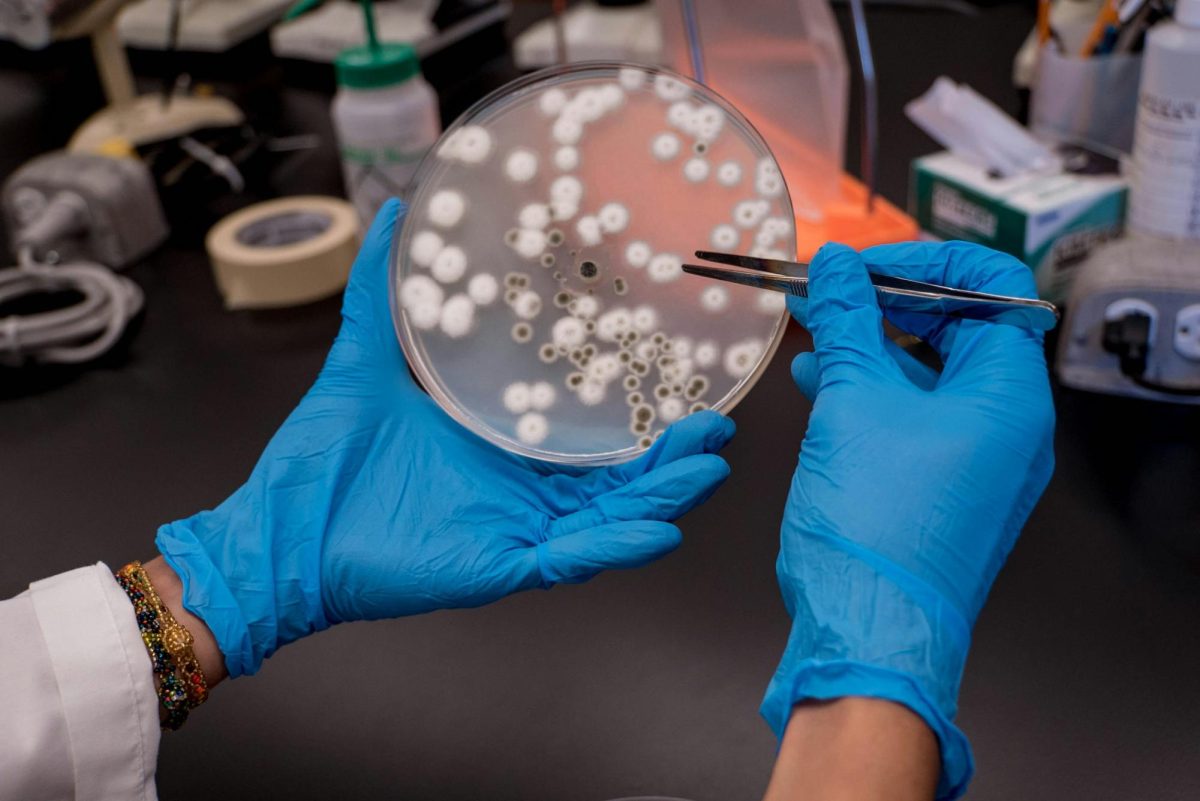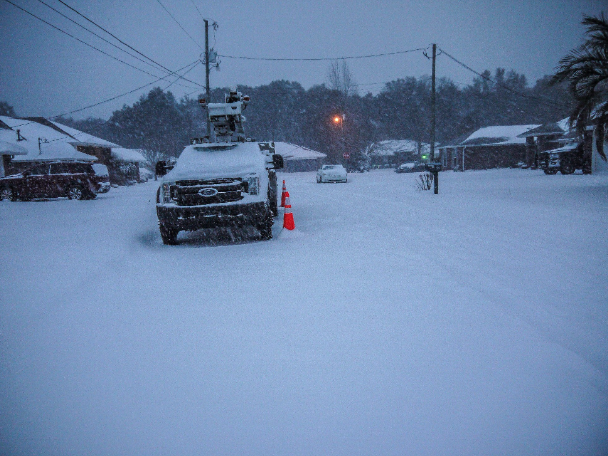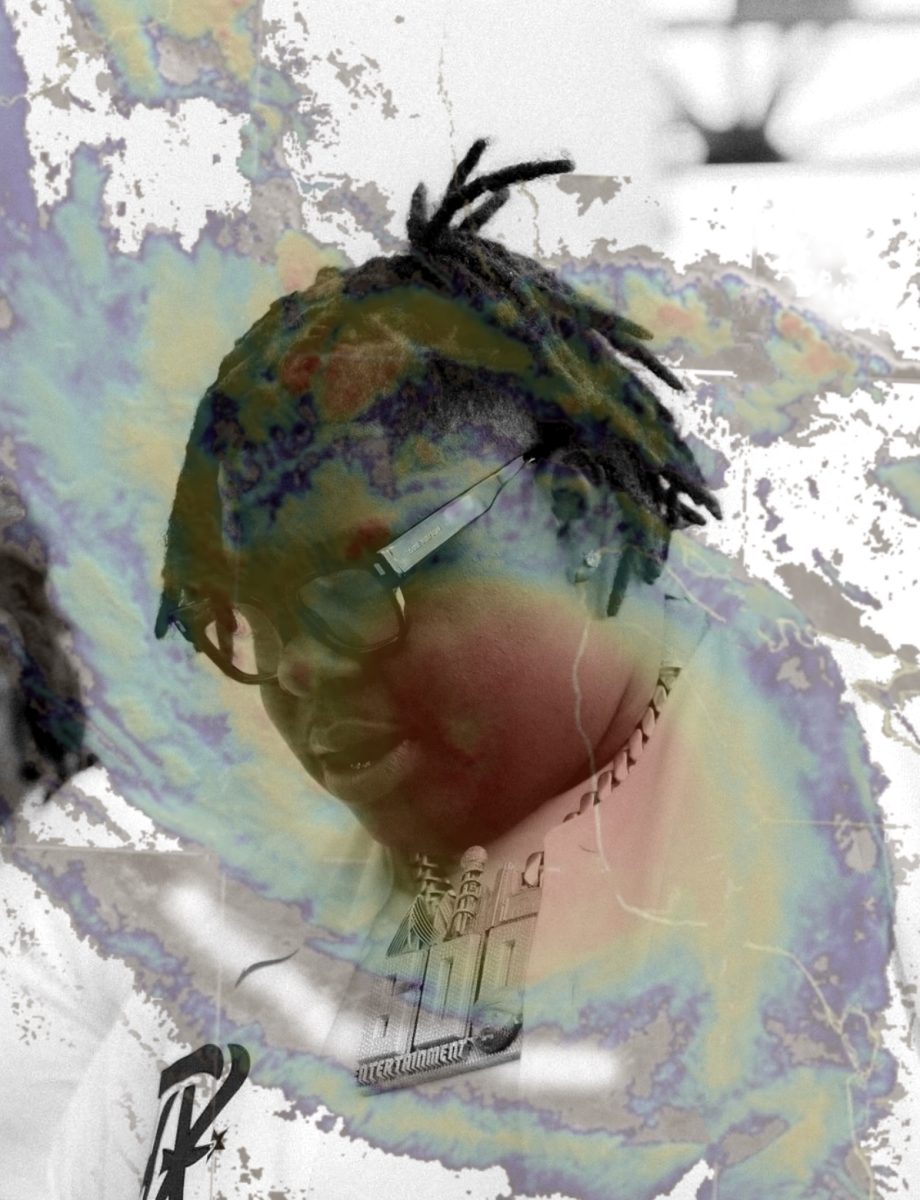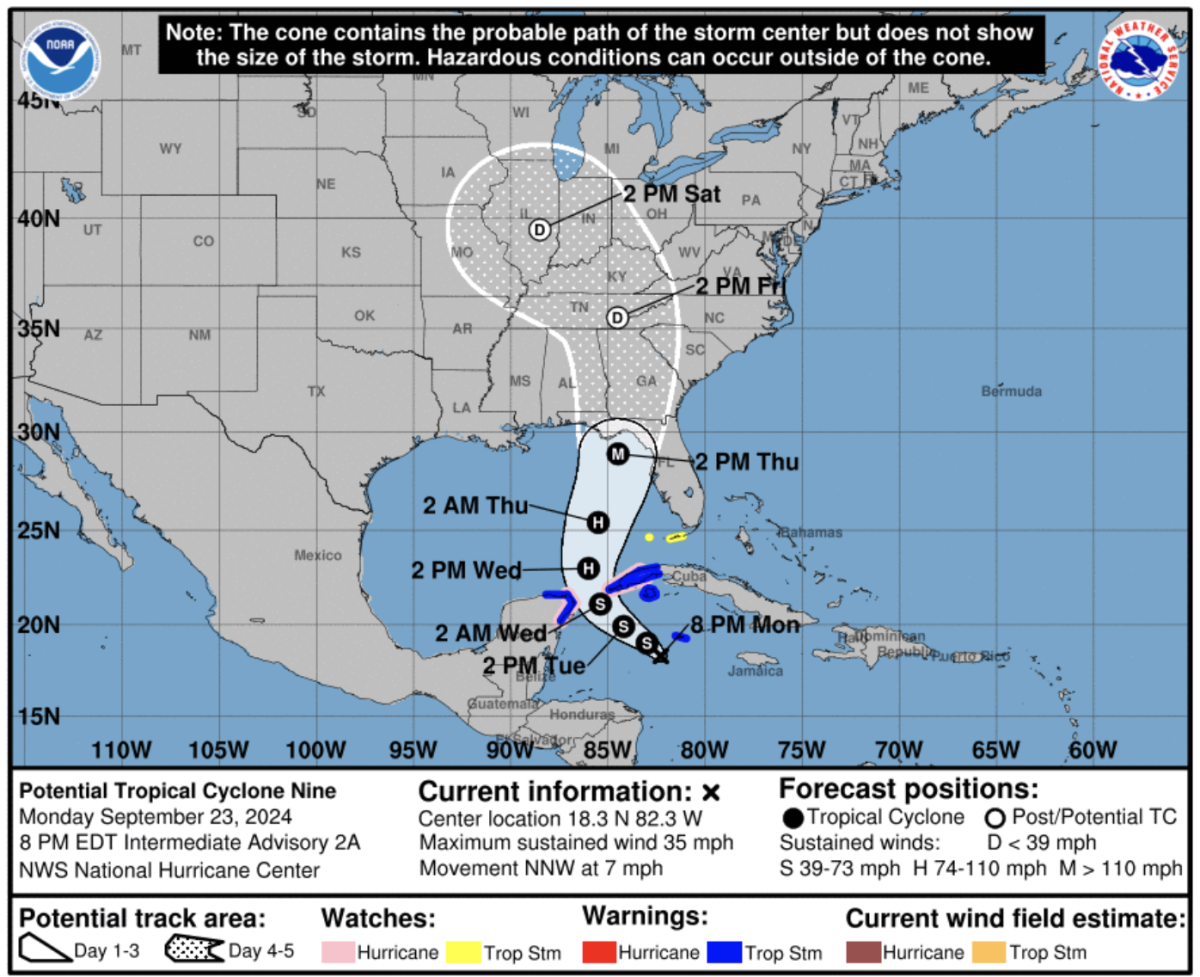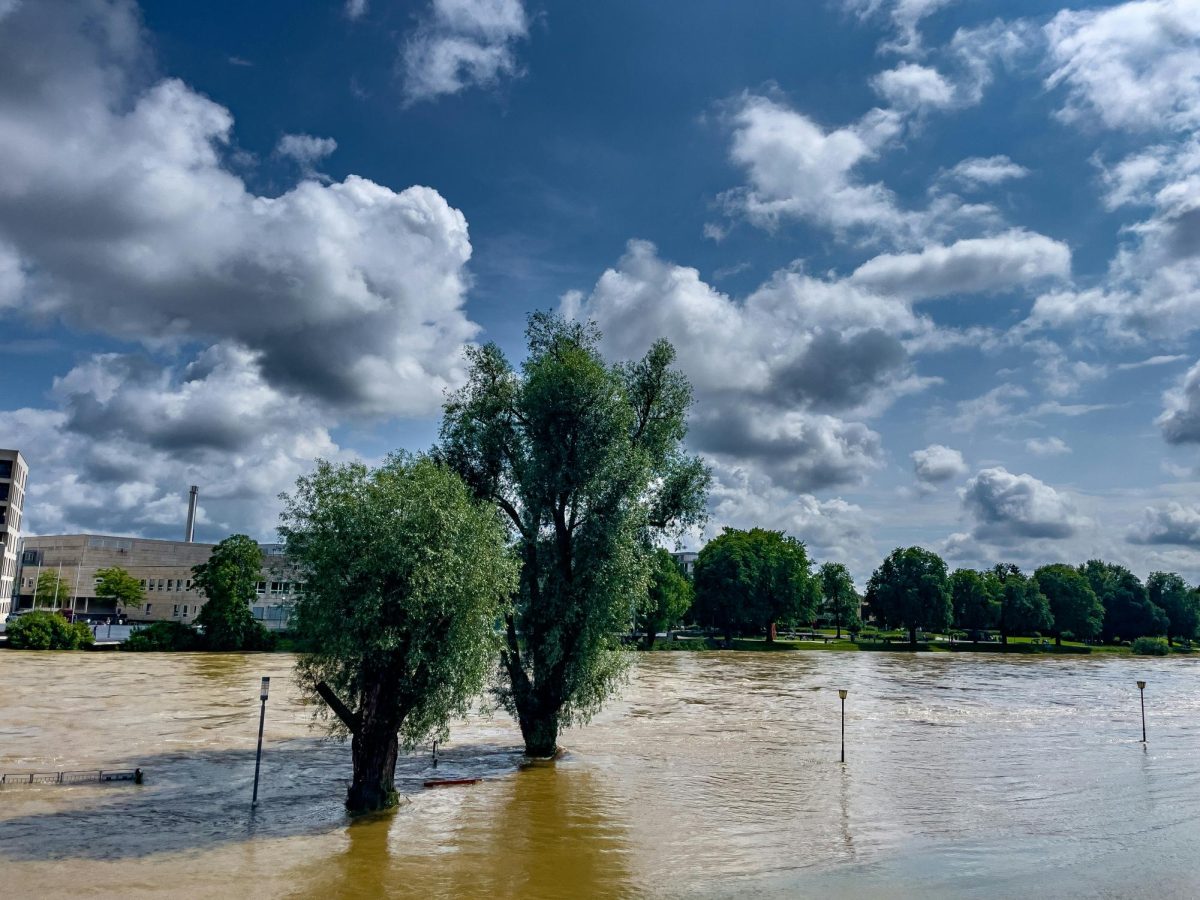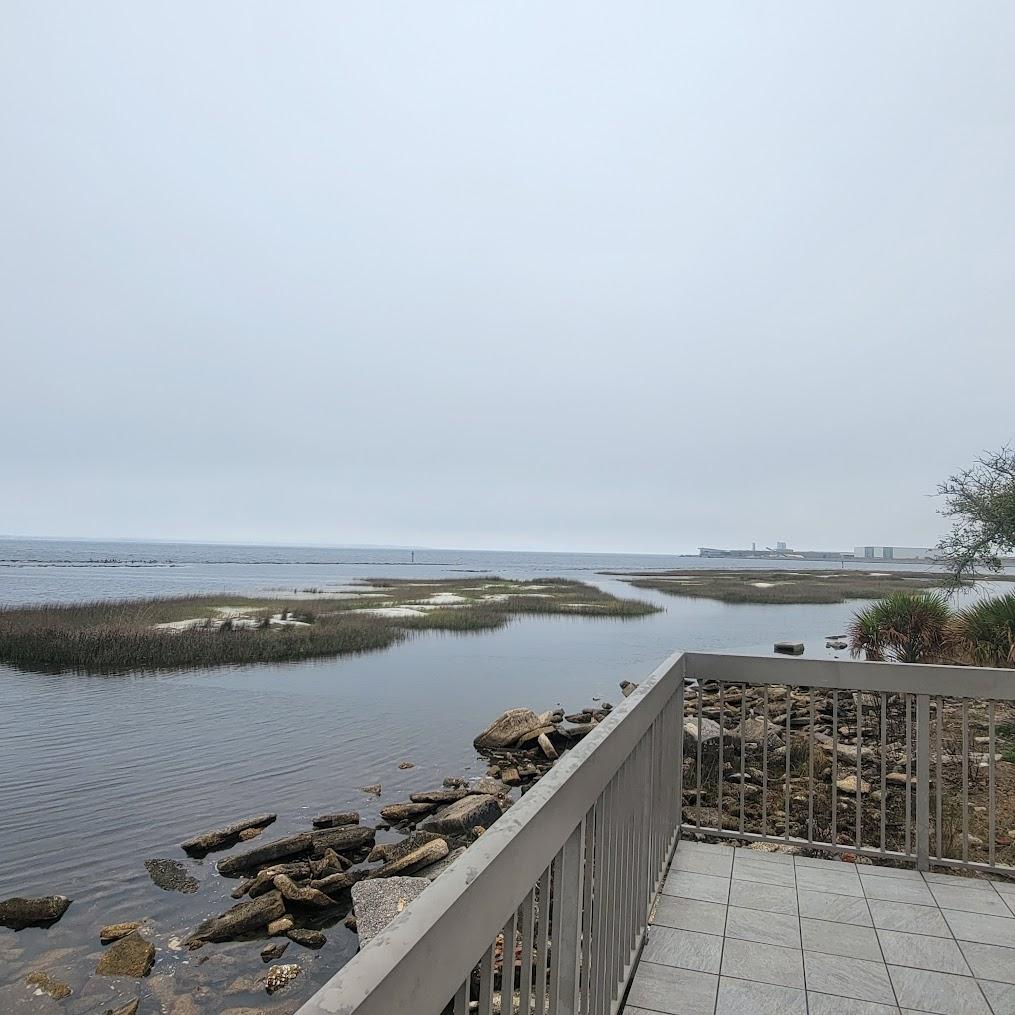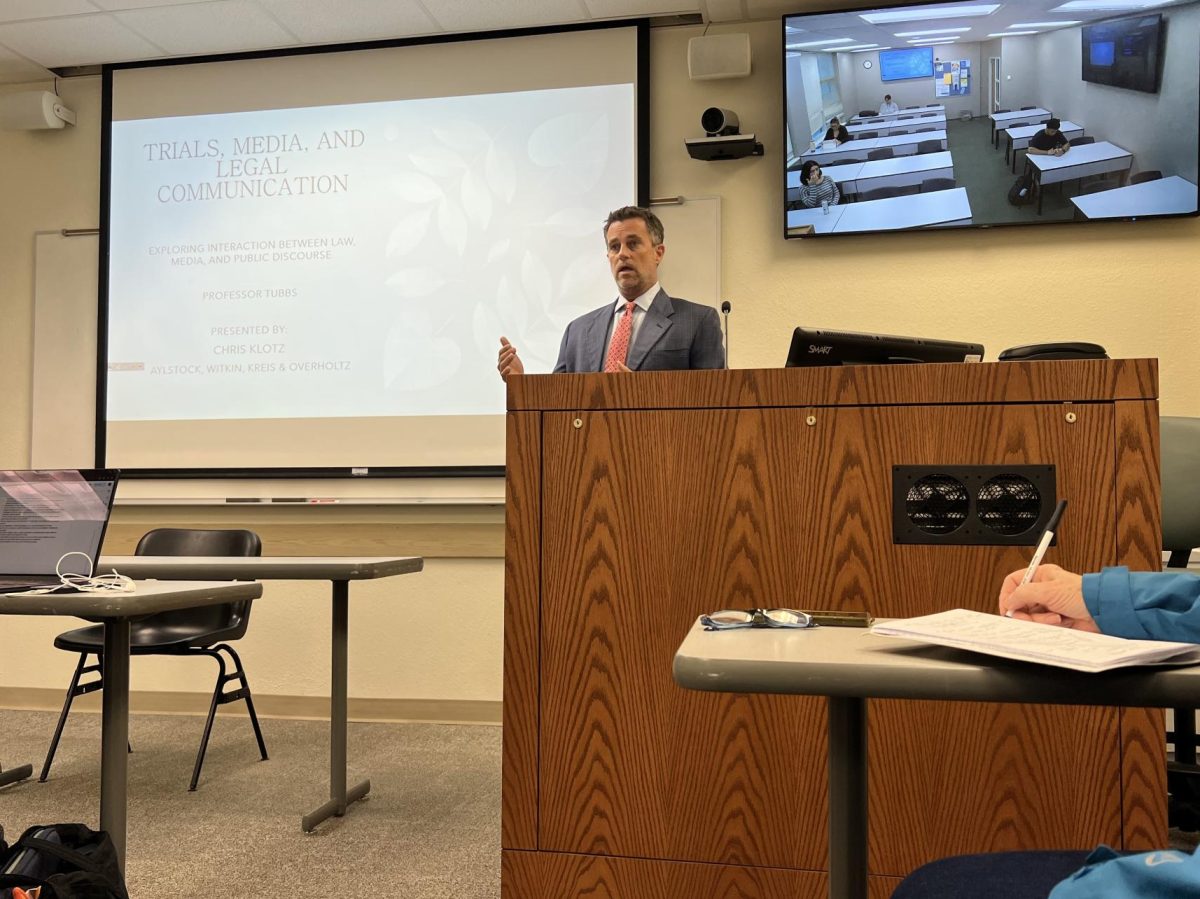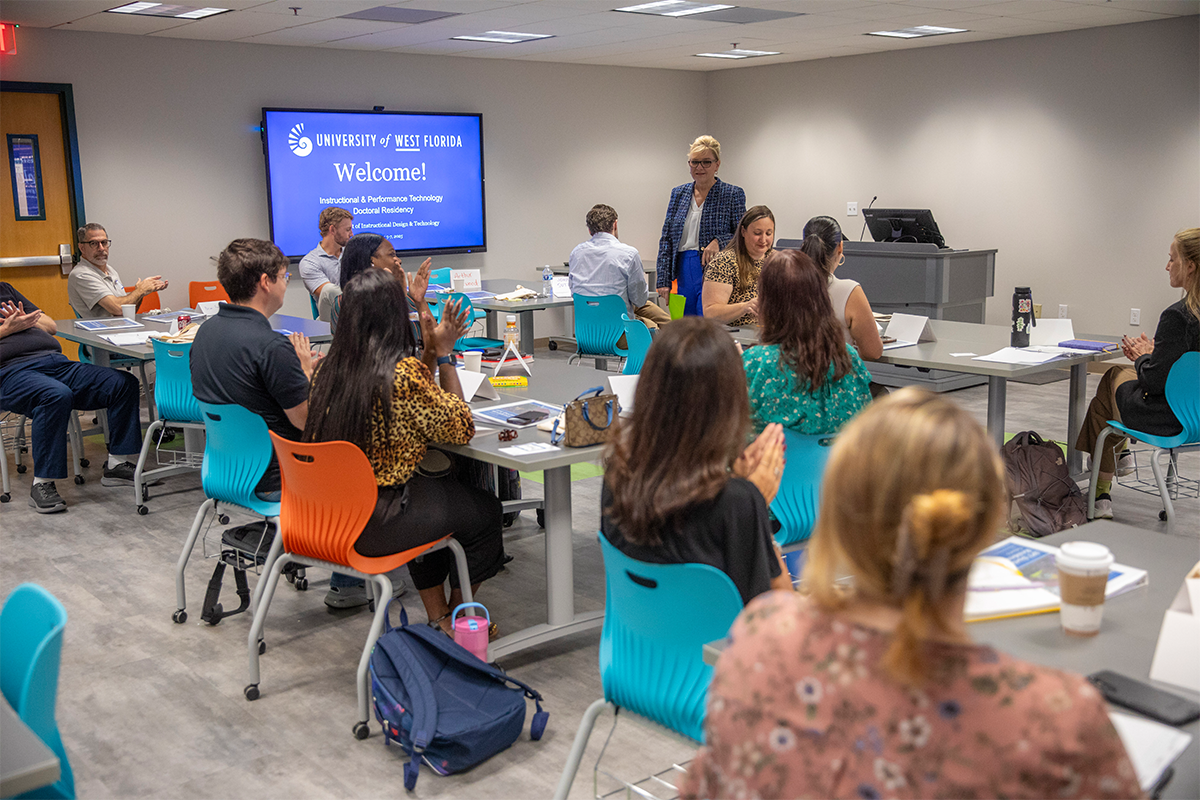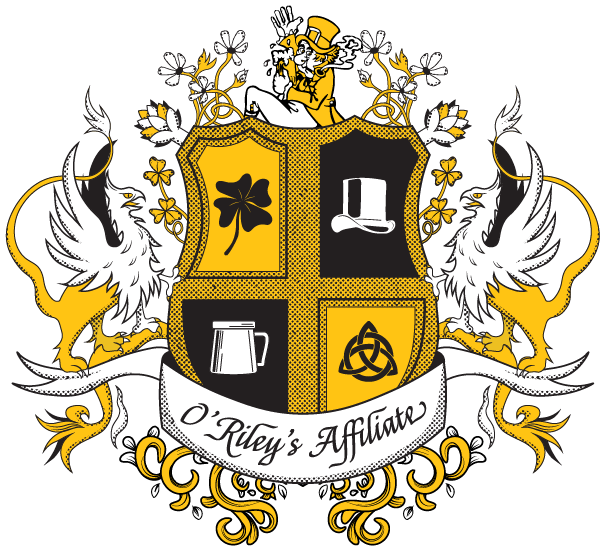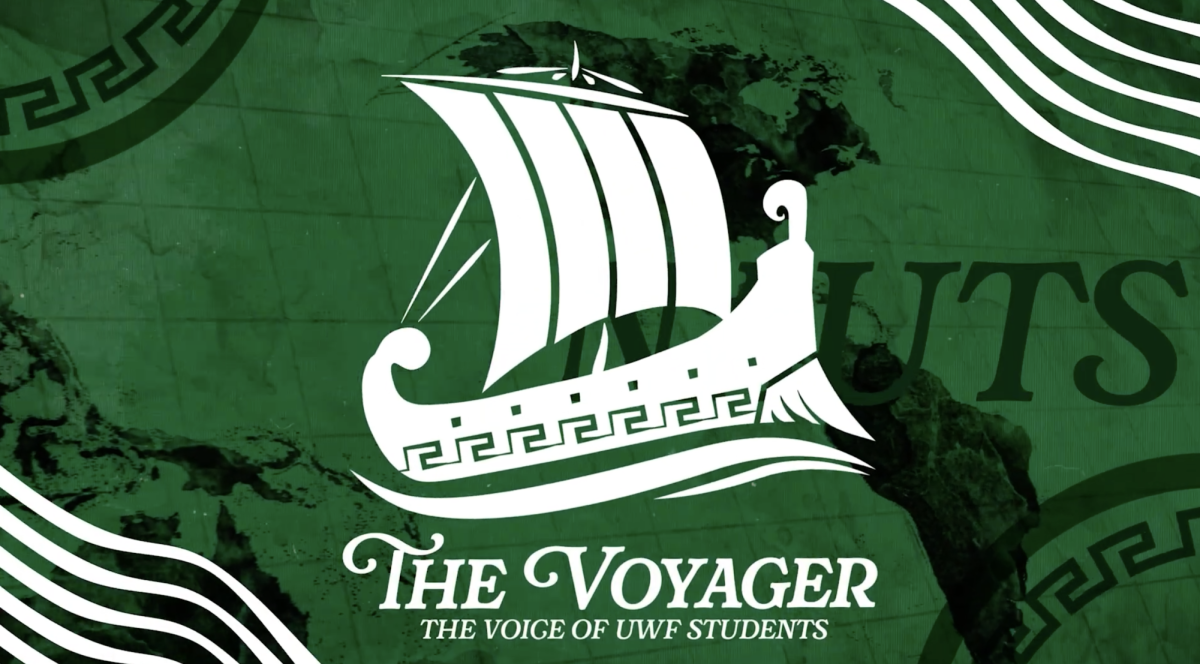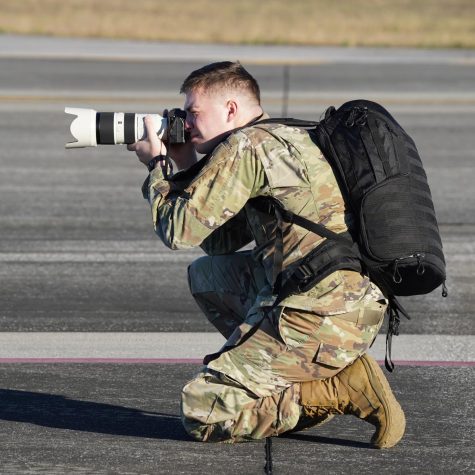Birding is a whole world unto itself. There is an invisible network of individuals with a slight bird obsession. They talk to each other via online applications and local organizations to track and identify the migrations of birds. The groups of “birders” are critical to scientists who use the data they provide to advise on policy and protect various species. In Nnorthwest Florida and Pensacola, there is a very active bird-watching community. Check out the video above for the full story.
Amanda, one of the interviewees in the video, asked that the history of the plume trade in Florida be included. Combating the plume trade in Florida was the beginning of various organizations and policy decisions that led to the world of birding around us today. To learn more about the plume trade, see their website.
Below is the transcript from the video:
Dylan Gentile, the interviewer
“Are you feeling a little bit bird-curious? Well, have I got news for you. I’ve got just the club
that fits that need. For anyone wondering about birds, have you ever heard about bird watching? Despite the controversy in the bird community, anyone could get involved in bird
watching.”
A montage of bird-related news follows
Troy, roommate of the interviewer
“They’re government drones. We all know it. There were less birds when we were
all in isolation during COVID.” When asked about going bird watching, Troy replied, “I would bring a repair kit to disassemble the birds.”
Gentile, interviewer
“I went out with Amanda on Sunday to Fort Pickens [to go bird-watching], and while I was there, I learned just how deep the rabbit hole goes.”
Amanda Post, a bird enthusiast involved with the Audubon Society
“Well, with birding, not only can you enjoy something pretty low-stakes and exciting you can go outside and look at cute little creatures, but it’s also very, very cheap. In fact,
you don’t have to go far to go birding. You can just walk outside, look up and around, pause and observe your environment. You never know what kind of bird you’re going to see.”
Gentile
“I’m going to let Amanda tell a lot of the story here. She is the subject matter expert in the world of birds and she probably has a lot more to say than I do. I’m just a silly, goofy guy. I don’t know anything about birds. Amanda does, listen to Amanda.”
Post
“I am a senior student at the University of West Florida and I am part of the Audubon 2023-24 Conservation Leadership Initiative. Audubon is one of the oldest conservation
organizations in the US, specifically Audubon, Florida, have been around for over 120 years.
So, there are different ways that students are being involved with Audubon in a typical month. There are so many different bird outings where students can join birders who are, I wouldn’t say professional, but they’ve been doing it for a lot longer and might have a bigger roster of birds
they can identify that they know of and you can join them to go on these awesome bird walks.
Together, as a group, you survey the environment and look for birds. Birds were the first big [interest in conservation] for the Western world, in Florida. [They were] the first big reason why we had such a robust conservation effort. And it’s been fundamental to the culture
and the awareness, right?
It’s like wagering the benefits of safeguarding bird habitat and sitting down and truly striking out
policy and social interactions that help protect a little entity that may be overlooked by most. It’s a world that expands itself through migration, but then also just calls for attention to the tiniest, tiniest of details.
Should you be so lucky to find the bird world around you, Florida’s just so biodiverse and there’s so much that you can find and see. The cool thing about birds is that here is the opportunity for you to see something that might not occur here that often, and the bird comes to you, and then you can go out there and try to find it with your friends.
[Bird watching] is an opportunity to acquaint yourself with these systems in our area. Then you get to engage in a treasure hunt and the treasure are the birds.
[Birding] is this like network where everyone has a really big heart for habitat conservation, for the well-being of the birds and they’re all really cool observers. I love that perspective, especially when so much of life is just so busy to like, settle down, be super quiet and then hope to find a bird. You don’t know if you will, but if you do, the payout is really exciting.”
Gentile
“When I first pulled up to the meeting spot for this Audubon event, I mostly saw a gaggle of old people and I assumed that was where I should migrate towards to get in. But then once I got in there, I met a couple of other students. I actually met Domani from PSC (Pensacola State College.) Domani was able to tell me everything about how their birding obsession started. Domani traveled the world to go look at birds. Domani started looking at birds when they were like 14.”
Domani Turner-Ward, a bird enthusiast also involved with the Audubon Society
“What I want people to know about birding is that anyone can get involved and do it. There are only three things that you need to be interested in birds. You have to have a good sense of wonder. You have to want to explore. You want to appreciate what you’re seeing, even if you don’t necessarily have a lot of knowledge about it yet, and you have to have a good sense of patience. There are a lot of times when we do stakeouts and we are just waiting for the bird
to come out of the underbrush. But if you have those three things, you can be a birder.
A great way to get into birding is going to a local Audubon meeting. If you’re in the Pensacola area, that would be the Francis M Weston Audubon Society. They have meetings once a month on Thursday evenings, as well as field trips that you can look up on their website. It’s great to become a member, but you don’t have to. Joining in on those field trips is a great way to see if you are interested in birding. Like I mentioned before, they often have binoculars available for people to try out.
When we went out birding with the Audubon Society last weekend, we were all so excited to see the Green-Tailed Towhee because for a lot of us it was a new bird and we aren’t supposed
to see it around here at all. It’s very rare to see one in northwest Florida, the furthest east that it typically gets is actually Texas. So, it is very far out of its range, probably a little lost, but an absolute joy for us to witness.
The way that birders know how to find birds and where they are is usually through other birders. We actually have a really great network. There is this especially awesome program
called eBird. It’s this website that collects citizen science data, and birders will post what birds they see at different locations, what number of birds and what the birds are doing. Often, they’ll post pictures of the birds and notes and that helps everyone know what’s going on. So, if you’re just taking a hike, and you happen to see something rare, you can inform the rest of the community and also have your sighting verified.
So, looking online at those communities, then talking to people at meetings are all really great ways to figure out where the birds are and what they’re doing. There’s a lot of ecology involved and communication.”
Gentile
“So, I got a text of some exact details on what went down the Sunday I went out with the infamous bird watchers of Pensacola/northwest Florida.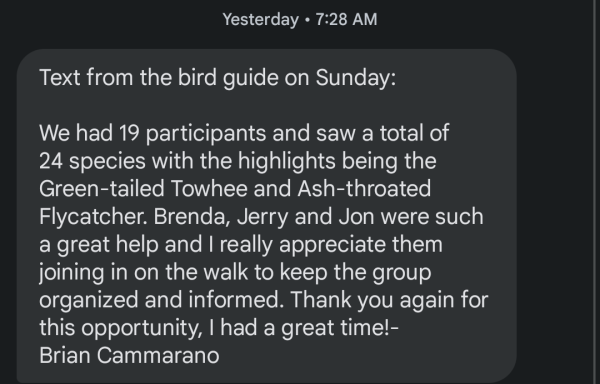
There’s a big overlap between the birdwatching community and a lot of other
environmental interest groups. I think when I was there, I met a lot of different photographers who were interested in wildlife photography in general and were just kind of looking for a social group that shares their interests. I also met a lot of people who worked in conservation in the state parks and whatnot that were there as well.
[The bird-watching volunteers with Audubon] were very helpful. I didn’t know what was going on. They were guiding me and they would tell me where to point the binoculars. One guy actually brought this super fancy scope thing which could see really far out.
Have you ever been hiking and you walk in on one of those sightseeing stands where you put your eyes in it and you put in a quarter and you can see like 50 miles out? They had that and anyone who was there, they were encouraging and showing them the birds and explaining what the birds are and the significance of the birds.
I realized birds are all around us. There is nowhere you can go where there are zero birds and where there are birds, there is a story. If you’re interested in birds, you should join them and get involved and visit their website and their social media.
Even if you don’t know anything about birds, what you’re doing is you’re hanging out outside with other people. You’re outside, you’re not alone. It’s about building community.”
If you live in northwest Florida and are interested in getting involved in birding, check out the Francis M. Weston Audubon Society.
For up-to-date information on upcoming events to get involved with, visit them on social media.
To utilize the application mentioned in the video that connects you with other bird watchers and allows you to participate in the tracking and identification of bird species, click here.

